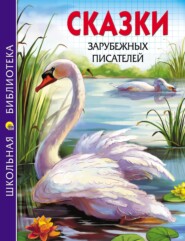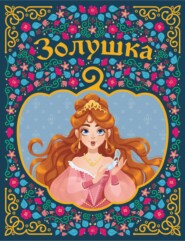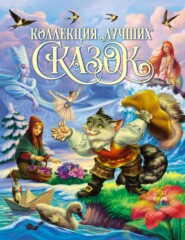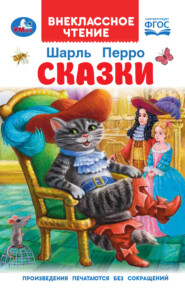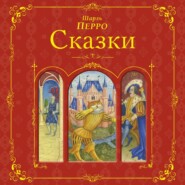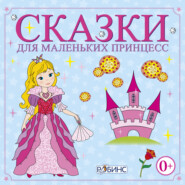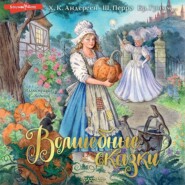По всем вопросам обращайтесь на: info@litportal.ru
(©) 2003-2024.
✖
Old-Time Stories
Настройки чтения
Размер шрифта
Высота строк
Поля
Little Tom Thumb now approached the ogre and gently pulled off his boots, which he at once donned himself. The boots were very heavy and very large, but being enchanted boots they had the faculty of growing larger or smaller according to the leg they had to suit. Consequently they always fitted as though they had been made for the wearer.
He went straight to the ogre's house, where he found the ogre's wife weeping over her murdered daughters.
'Your husband,' said little Tom Thumb, 'is in great danger, for he has been captured by a gang of thieves, and the latter have sworn to kill him if he does not hand over all his gold and silver. Just as they had the dagger at his throat, he caught sight of me and begged me to come to you and thus rescue him from his terrible plight. You are to give me everything of value which he possesses, without keeping back a thing, otherwise he will be slain without mercy. As the matter is urgent he wished me to wear his seven-league boots, to save time, and also to prove to you that I am no impostor.'
The ogre's wife, in great alarm, gave him immediately all that she had, for although this was an ogre who devoured little children, he was by no means a bad husband.
Little Tom Thumb, laden with all the ogre's wealth, forthwith repaired to his father's house, where he was received with great joy.
Many people do not agree about this last adventure, and pretend that little Tom Thumb never committed this theft from the ogre, and only took the seven-league boots, about which he had no compunction, since they were only used by the ogre for catching little children. These folks assert that they are in a position to know, having been guests at the wood-cutter's cottage. They further say that when little Tom Thumb had put on the ogre's boots, he went off to the Court, where he knew there was great anxiety concerning the result of a battle which was being fought by an army two hundred leagues away.
They say that he went to the king and undertook, if desired, to bring news of the army before the day was out; and that the king promised him a large sum of money if he could carry out his project.
Little Tom Thumb brought news that very night, and this first errand having brought him into notice, he made as much money as he wished. For not only did the king pay him handsomely to carry orders to the army, but many ladies at the court gave him anything he asked to get them news of their lovers, and this was his greatest source of income. He was occasionally entrusted by wives with letters to their husbands, but they paid him so badly, and this branch of the business brought him in so little, that he did not even bother to reckon what he made from it.
After acting as courier for some time, and amassing great wealth thereby, little Tom Thumb returned to his father's house, and was there greeted with the greatest joy imaginable. He made all his family comfortable, buying newly-created positions for his father and brothers. In this way he set them all up, not forgetting at the same time to look well after himself.
THE FAIRIES
Once upon a time there lived a widow with two daughters. The elder was often mistaken for her mother, so like her was she both in nature and in looks; parent and child being so disagreeable and arrogant that no one could live with them.
The younger girl, who took after her father in the gentleness and sweetness of her disposition, was also one of the prettiest girls imaginable. The mother doted on the elder daughter – naturally enough, since she resembled her so closely – and disliked the younger one as intensely. She made the latter live in the kitchen and work hard from morning till night.
One of the poor child's many duties was to go twice a day and draw water from a spring a good half-mile away, bringing it back in a large pitcher. One day when she was at the spring an old woman came up and begged for a drink.
'Why, certainly, good mother,' the pretty lass replied. Rinsing her pitcher, she drew some water from the cleanest part of the spring and handed it to the dame, lifting up the jug so that she might drink the more easily.
Now this old woman was a fairy, who had taken the form of a poor village dame to see just how far the girl's good nature would go. 'You are so pretty,' she said, when she had finished drinking, 'and so polite, that I am determined to bestow a gift upon you. This is the boon I grant you: with every word that you utter there shall fall from your mouth either a flower or a precious stone.'
When the girl reached home she was scolded by her mother for being so long in coming back from the spring.
'I am sorry to have been so long, mother,' said the poor child.
As she spoke these words there fell from her mouth three roses, three pearls, and three diamonds.
'What's this?' cried her mother; 'did I see pearls and diamonds dropping out of your mouth? What does this mean, dear daughter?' (This was the first time she had ever addressed her daughter affectionately.)
The poor child told a simple tale of what had happened, and in speaking scattered diamonds right and left.
'Really,' said her mother, 'I must send my own child there. Come here, Fanchon; look what comes out of your sister's mouth whenever she speaks! Wouldn't you like to be able to do the same? All you have to do is to go and draw some water at the spring, and when a poor woman asks you for a drink, give it her very nicely.'
'Oh, indeed!' replied the ill-mannered girl; 'don't you wish you may see me going there!'
'I tell you that you are to go,' said her mother, 'and to go this instant.'
Very sulkily the girl went off, taking with her the best silver flagon in the house. No sooner had she reached the spring than she saw a lady, magnificently attired, who came towards her from the forest, and asked for a drink. This was the same fairy who had appeared to her sister, masquerading now as a princess in order to see how far this girl's ill-nature would carry her.
'Do you think I have come here just to get you a drink?' said the loutish damsel, arrogantly. 'I suppose you think I brought a silver flagon here specially for that purpose – it's so likely, isn't it? Drink from the spring, if you want to!'
'You are not very polite,' said the fairy, displaying no sign of anger. 'Well, in return for your lack of courtesy I decree that for every word you utter a snake or a toad shall drop out of your mouth.'
The moment her mother caught sight of her coming back she cried out, 'Well, daughter?'
'Well, mother?' replied the rude girl. As she spoke a viper and a toad were spat out of her mouth.
'Gracious heavens!' cried her mother; 'what do I see? Her sister is the cause of this, and I will make her pay for it!'
Off she ran to thrash the poor child, but the latter fled away and hid in the forest near by. The king's son met her on his way home from hunting, and noticing how pretty she was inquired what she was doing all alone, and what she was weeping about.
'Alas, sir,' she cried; 'my mother has driven me from home!'
As she spoke the prince saw four or five pearls and as many diamonds fall from her mouth. He begged her to tell him how this came about, and she told him the whole story.
The king's son fell in love with her, and reflecting that such a gift as had been bestowed upon her was worth more than any dowry which another maiden might bring him, he took her to the palace of his royal father, and there married her.
As for the sister, she made herself so hateful that even her mother drove her out of the house. Nowhere could the wretched girl find any one who would take her in, and at last she lay down in the forest and died.
RICKY OF THE TUFT
Once upon a time there was a queen who bore a son so ugly and misshapen that for some time it was doubtful if he would have human form at all. But a fairy who was present at his birth promised that he should have plenty of brains, and added that by virtue of the gift which she had just bestowed upon him he would be able to impart to the person whom he should love best the same degree of intelligence which he possessed himself.
This somewhat consoled the poor queen, who was greatly disappointed at having brought into the world such a hideous brat. And indeed, no sooner did the child begin to speak than his sayings proved to be full of shrewdness, while all that he did was somehow so clever that he charmed every one.
I forgot to mention that when he was born he had a little tuft of hair upon his head. For this reason he was called Ricky of the Tuft, Ricky being his family name.
Some seven or eight years later the queen of a neighbouring kingdom gave birth to twin daughters. The first one to come into the world was more beautiful than the dawn, and the queen was so overjoyed that it was feared her great excitement might do her some harm. The same fairy who had assisted at the birth of Ricky of the Tuft was present, and, in order to moderate the transports of the queen she declared that this little princess would have no sense at all, and would be as stupid as she was beautiful.
The queen was deeply mortified, and a moment or two later her chagrin became greater still, for the second daughter proved to be extremely ugly.
'Do not be distressed, Madam,' said the fairy; 'your daughter shall be recompensed in another way. She shall have so much good sense that her lack of beauty will scarcely be noticed.'
'May Heaven grant it!' said the queen; 'but is there no means by which the elder, who is so beautiful, can be endowed with some intelligence?'
'In the matter of brains I can do nothing for her, Madam,' said the fairy, 'but as regards beauty I can do a great deal. As there is nothing I would not do to please you, I will bestow upon her the power of making beautiful any person who shall greatly please her.'
As the two princesses grew up their perfections increased, and everywhere the beauty of the elder and the wit of the younger were the subject of common talk.
It is equally true that their defects also increased as they became older. The younger grew uglier every minute, and the elder daily became more stupid. Either she answered nothing at all when spoken to, or replied with some idiotic remark. At the same time she was so awkward that she could not set four china vases on the mantelpiece without breaking one of them, nor drink a glass of water without spilling half of it over her clothes.
Now although the elder girl possessed the great advantage which beauty always confers upon youth, she was nevertheless outshone in almost all company by her younger sister. At first every one gathered round the beauty to see and admire her, but very soon they were all attracted by the graceful and easy conversation of the clever one. In a very short time the elder girl would be left entirely alone, while everybody clustered round her sister.
The elder princess was not so stupid that she was not aware of this, and she would willingly have surrendered all her beauty for half her sister's cleverness. Sometimes she was ready to die of grief, for the queen, though a sensible woman, could not refrain from occasionally reproaching her with her stupidity.
The princess had retired one day to a wood to bemoan her misfortune, when she saw approaching her an ugly little man, of very disagreeable appearance, but clad in magnificent attire.
This was the young prince Ricky of the Tuft. He had fallen in love with her portrait, which was everywhere to be seen, and had left his father's kingdom in order to have the pleasure of seeing and talking to her.
Delighted to meet her thus alone, he approached with every mark of respect and politeness. But while he paid her the usual compliments he noticed that she was plunged in melancholy.







